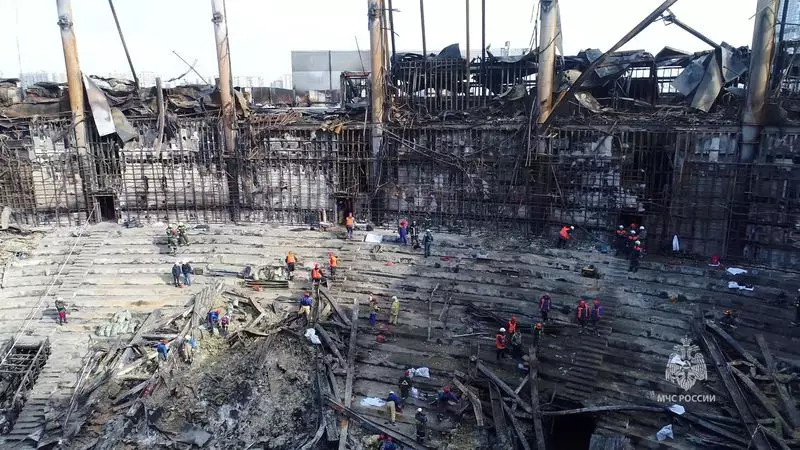The recent concert hall attack near Moscow, which resulted in the deaths of dozens of people, has had significant repercussions. Notably, there has been a surge of migrant workers leaving Russia for Tajikistan in the aftermath of the tragic event. This mass exodus is fueled by fear, panic, and a desire to escape the escalating violence. The attack has instilled a sense of insecurity among the migrant population, prompting many to seek refuge in their home country.
The influx of migrant workers returning to Tajikistan is exacerbating the labor shortage in Russia. The country is already facing a deficit in the construction industry, which is expected to grow by 36% this year compared to the previous year. Anton Glushkov, the president of the National Association of Builders, has warned that the outflow of migrant workers will further worsen the labor shortage in Russia’s economy. This in turn could lead to increased competition for jobs and higher wages for the remaining workforce.
The Russian Central Bank has highlighted the staff shortages as a key risk to inflation. The resulting jump in wages could put pressure on the economy and force the central bank to maintain an elevated key interest rate. The outflow of migrant workers from Russia is expected to have far-reaching consequences on various sectors of the economy. The reduced workforce could hamper production, lead to delays in construction projects, and disrupt the overall functioning of industries reliant on migrant labor.
While the current wave of migrant workers leaving Russia for Tajikistan is significant, Tajikistan’s labor ministry believes that this will be a temporary phenomenon. The ministry expects that many migrants will return to Russia once the situation stabilizes and concerns about safety subside. It is anticipated that the outflow of migrants from Russia is a knee-jerk reaction to the recent violence and will not be a long-term trend. As such, the labor ministry is closely monitoring the situation and preparing for the eventual return of these workers.
The concert hall attack near Moscow has triggered a mass movement of migrant workers from Russia to Tajikistan. This exodus is driven by fear, panic, and the desire to escape the growing violence in the region. The sudden departure of these workers is expected to worsen the labor shortage in Russia and have economic repercussions. However, it is hoped that this outflow will be temporary, and that many migrants will eventually return to their jobs in Russia once the situation stabilizes.

